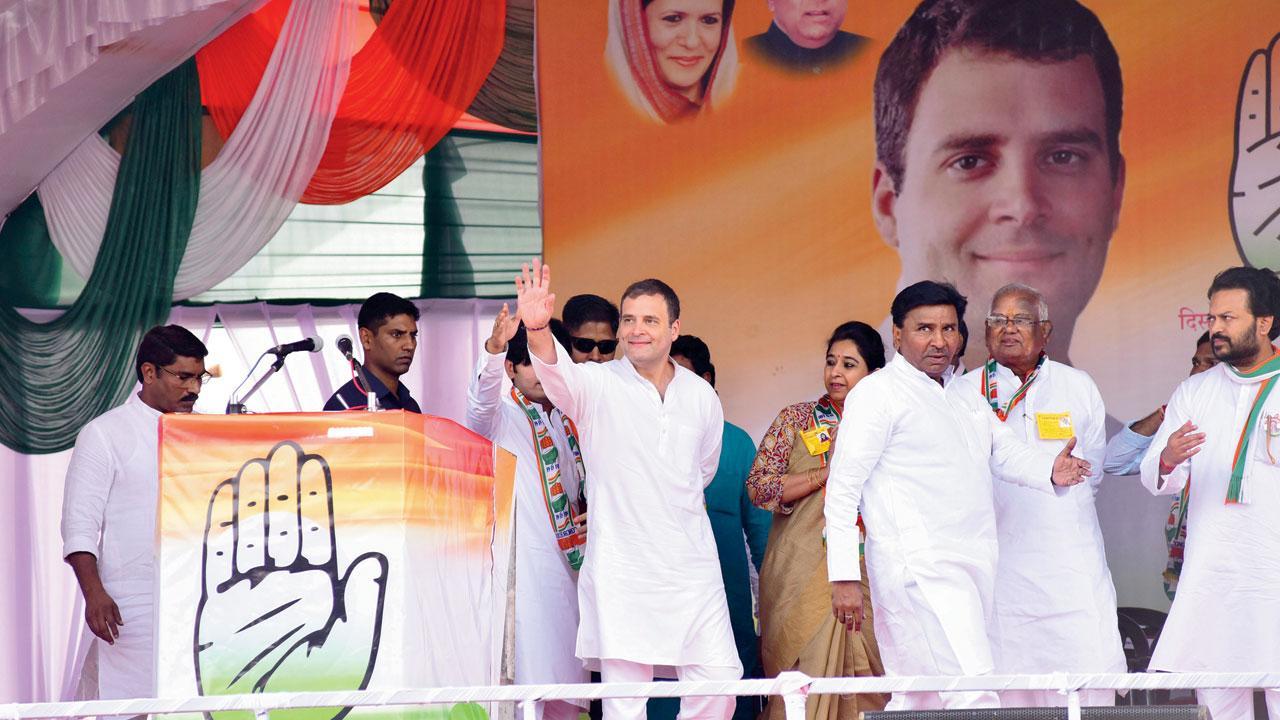What if a message, no matter how well-meaning, doesn’t reach enough people, or more likely, doesn’t inspire adequately?

The two times I have seen Rahul Gandhi, he displayed zero ‘VIP’ appearance with no armed guard indoors
 If there was a constituency of people who admired joys of necessary leisure, and a life after work, politician Rahul Gandhi would have that vote.
If there was a constituency of people who admired joys of necessary leisure, and a life after work, politician Rahul Gandhi would have that vote.
ADVERTISEMENT
Twice that I’ve seen him (from a distance), quietly winding down, displaying zero ‘VIP’ appearance, with no armed guard indoors, let alone disturbing anyone, was at public places/lounges: Stone House Grill (in Delhi), and Indigo (in Mumbai). This is when the Congress-led alliance—UPA—was in power. Frankly, I was quite impressed.
Of course there’s no such voting bloc. And electioneering in India is a complicated deal. Rahul’s paternal family, over five generations, have known this. Which makes him a ‘dynast’. And that’s a legit description.
But as an allegation/charge, it is usually directed against Rahul, I notice, by upper-class folk. All of whom intend to pass on their own family legacies to their kids—whether business, property, or private practice, if they’re professionals (barbers, lawyers, doctors, etc).
Politics, of course, is different. It’s a public profession. In the sense that the public gets to directly decide if a legacy is well-earned. Respect is not an inheritance. Much like show-business.
And there, actor Abhishek Bachchan, for instance, would be an equivalent to Rahul in Bollywood—who, over two decades, has been through his own phases of peak, long valleys, and quick surprises.
In the current, most experimental phase of his career, Abhishek told me recently, “Audiences, foremost, want to see how much effort an actor has put in for a role.” He works on that. This is probably true for politicians too, in the age of new media, that operates on the principle: ‘Early to bed, early to rise, work hard; and advertise, advertise, advertise!’ You just have to be seen to be working hard.
Of course people work hard too. Especially when you consider ambitions of a post-90s reforms ‘new India’, from varied backgrounds—rightfully seeking a say/place under the sun. Politics is a fine route. It’s as much theirs for the taking.
Is inherent aggression/hunger towards it necessarily related to how much you have to gain/lose, though? Maybe. Yet, privilege is simply what you make of it—nobody decides which family they’ll be born into. The father of the nation, technically, also belonged to the elite.
In the case of politician Rahul, the key deliverable, that is results in elections, state and general, have repeatedly been nothing to write home about. Although political observer Prashant Kishor, in an interview, points out that for the brief period that he was officially the Congress president, his electoral strike-rate was the same as his mother Sonia’s (albeit over two decades)—who, in turn, is credited with two (UPA) government formations at the Centre.
Even that strike-rate was about 30 per cent (way worse later). Obviously abysmal for a party that dominated India’s politics for almost seven decades. This is why you hear people with ever-ready advice for the Congress, everywhere—even if they may not vote for it themselves. All these people I know are essentially democrats, and perhaps sense a Congress-shaped hole in the heart of India’s oppositional politics.
Every country in the world has a government. The one with a proper opposition is called a democracy. Among Indian parties at the moment, Congress, with 11 crore-plus votes from the last general election still, is closest to a national opposition. Not that democracy equals elections alone. By that yardstick, even Iraq under Saddam Hussein’s Ba’athist Party was a democracy.
I mean a genuine, alternate, acceptable voice/message in the mass/political space. And what is that? Those following politics more closely will weigh in better—I can’t see any. As a media-watcher, for instance, I find state censorship the hugest concern. What’s the political oppositional voice on it? None. There are many other contentious issues, where people on their own have taken to the streets instead.
Otherwise, even while covering general elections (unless you were down South), you would’ve altogether found energetic volunteers/supporters of one party on the ground. This mass mobilisation isn’t a surprise, when you consider Nalin Mehta’s stats in his book The New BJP, wherein the BJP “grew its membership almost five-fold between 2014 and 2019,” at 174 million sign-ups, “twice the size of CCP (Chinese Communist Party).”
Kishor, in another interview, says the Congress hasn’t had a membership drive in 20 years, while the BJP put in their second recruitment thrust, after they won in 2019! Why blame merely Rahul and not the entire Congress top-brass/pundits/strategists then? Because Indian politics, observed from afar, inevitably operates around personality cults—from Nehru, Indira, down to Vajpayee, Modi.
The message needn’t be messianic. But even if gently well-intentioned, when it doesn’t reach people, or more likely, inspires no one, what you are left with is simply Rahul, the social media influencer.
That’s how we’ve known/seen him (from a distance), mostly tweeting sense—constantly battered for being stupid, apparently, over a lethal online attack, through clips, memes, etc; aimed at getting an individual/party more and more under-confident, as a political opponents’ strategy.
This part of audience democracy is pure show-business, nothing else. Where respect plus fame merely work like a wave/contagion—nobody supports you, until it becomes a popular thing to do.
Mayank Shekhar attempts to make sense of mass culture. He tweets @mayankw14
Send your feedback to mailbag@mid-day.com
The views expressed in this column are the individual’s and don’t represent those of the paper
 Subscribe today by clicking the link and stay updated with the latest news!" Click here!
Subscribe today by clicking the link and stay updated with the latest news!" Click here!







